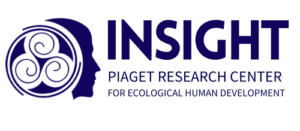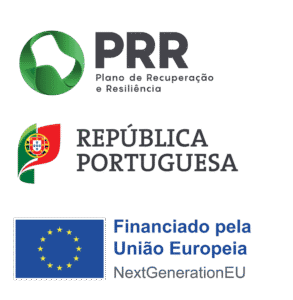Alarcão, V., Roberto, S., França, T., & Moleiro, C. (2022). Standing up for culturally competent care in Portugal: The experience of a “Health in Equality” online training program on individual and cultural diversity. Societies, 12(3), 80. http://dx.doi.org/10.3390/soc12030080
Almeida, V., Pires, D., Silva, M., Teixeira, M., Teixeira, R. J., Louro, A., Dinis, M. A. P., Ferreira, M., & Teixeira, A. (2023). Dermatological side effects of cancer treatment: Psychosocial implications—A systematic review of the literature. Healthcare, 11(19), 2621. http://dx.doi.org/10.3390/healthcare11192621
Barros, A., Santos, H., Moreira, L., & Santos-Silva, F. (2022). Translation and cross-cultural adaptation of the Cancer Health Literacy Test for Portuguese cancer patients: A pre-test. International Journal of Environmental Research and Public Health, 19(10), 6237. https://doi.org/10.3390/ijerph19106237
Belizario, F. (2022). Managing outreach services for sex workers during COVID-19 outbreak. World Health Organization EURO Virtual Library on Good Practices. https://virtuallibrary.euro.who.int/index.php/vl/article/view/90/71
Belizario, F. (2023). Managing outreach services for sex workers during the COVID-19 pandemic: The PortoG TB case study. World Health Organization Virtual Library of Good Practices. https://virtuallibrary.euro.who.int/index.php/vl/article/view/90
Cotrim, C. A., Café, H., João, I., Cotrim, N., Guardado, J., Cordeiro, P., Cotrim, H., & Baquero, L. (2022). Exercise stress echocardiography: Where are we now? World Journal of Cardiology, 14(2), 64-82. http://www.scopus.com/inward/record.url?eid=2-s2.0-85125842109&partnerID=MN8TOARS
Cotrim, H., Granja, C., Carvalho, A. S., Cotrim, C., & Martins, R. (2021). Children’s understanding of informed assents in research studies. Healthcare, 9(7), 871. http://dx.doi.org/10.3390/healthcare9070871
de Oliveira, N. M., Lopes, L., Chéu, M. H., Soares, E., Meireles, D., & Machado, J. (2023). Updated mineral composition and potential therapeutic properties of different varieties of olive leaves from Olea europaea. Plants, 12(4), 916. https://doi.org/10.3390/plants12040916
de Oliveira, N. M., Machado, J., Chéu, M. H., Lopes, L., Barroso, M. F., Silva, A., Sousa, S., Domingues, V. F., & Grosso, C. (2024). Potential therapeutic properties of Olea europaea leaves from selected cultivars based on their mineral and organic profiles. Pharmaceuticals, 17(3), 274. https://doi.org/10.3390/ph17030274
Ferreira, M. M., Vidal, D. G., Teixeira, J. M., Silva, M. S., & Parola, V. S. (2023). Afetividade e ambiente de trabalho dos enfermeiros: Estudo transversal. Journal of Nursing and Health. https://doi.org/10.15210/jonah.v13i1.23418
Malheiro, I. C., do Carmo, T. G., Cavalcanti, A. C. D., & Flores, P. V. P. (2020). Intervenções de enfermagem no pós-operatório de cirurgia cardíaca. Research, Society and Development, 9(7), 277974080. https://doi.org/10.33448/rsd-v9i7.4080
Manjolo, I. de F., & Alves, P. (2022). Psychological support to families of students with Down syndrome at municipal office in Lobito. International Journal of Health Science, 2(41), 2-10. http://dx.doi.org/10.22533/at.ed.1592412225074
Meireles, A., Marques, S., Faria, S., Lopes, J. C., Teixeira, A. R., Alves, B., & Becker, S. (2023). Being a young carer in Portugal: The impact of caring on adolescents’ life satisfaction. International Journal of Environmental Research and Public Health, 20(21), 7017. http://dx.doi.org/10.3390/ijerph20217017
Mendes, J., Alexandre-Sousa, P., & Tavares, M. (2024). Predictive model of the relationship between positive and negative affect, self-consciousness of appearance, and positive body image in physical exercise practice. Healthcare, 12(187), 1-12. https://doi.org/10.3390/healthcare12020187
Moleiro, C., & Roberto, S. (2021). The path to adulthood: A mixed-methods approach to the exploration of the experiences of unaccompanied minors in Portugal. Journal of Refugee Studies, 34(3), 3264-3287. http://dx.doi.org/10.1093/jrs/feab033
Pereira, M. G., Pedras, S., Louro, A., Lopes, A., & Vilaça, M. (2023). Stress reduction interventions for patients with chronic diabetic foot ulcers: A qualitative study into patients and caregivers’ perceptions. Journal of Foot and Ankle Research. https://doi.org/10.1186/s13047-022-00592-x
Reis, J. C., Antoni, M. H., & Travado, L. (2020). Emotional distress, brain functioning, and biobehavioral processes in cancer patients: a neuroimaging review and future directions. CNS Spectrums, 25(1), 79-100. http://dx.doi.org/10.1017/s1092852918001621
Reis, J. C., Travado, L., Antoni, M., Oliveira, F. P. M., Almeida, S. D., Almeida, P., Heller, A. S., Sousa, B., & Costa, D. C. (2020). Negative affect and stress-related brain metabolism in patients with metastatic breast cancer. Cancer, 126(13), 3122-3131. https://doi.org/10.1002/cncr.32902
Reis, J. C., Travado, L., Heller, A. S., Oliveira, F. P. M., Almeida, S. D., Sousa, B., Costa, D. C., & Antoni, M. H. (2023). Greater perceived stress management skills and heightened brain metabolic activity in cortical and subcortical stress processing regions in metastatic breast cancer patients. Brain Imaging and Behavior. http://dx.doi.org/10.1007/s11682-023-00821-2
Reis, J. C., Travado, L., Seixas, E., Sousa, B., & Antoni, M. H. (2022). Perceived efficacy of stress management skills, emotional distress, and diurnal cortisol in women with metastatic breast cancer. International Journal of Stress Management. http://dx.doi.org/10.1037/str0000260
Reis, J. C., Travado, L., Seixas, E., Sousa, B., & Antoni, M. H. (2022). Low social and family well-being is associated with greater RAGE ligand s100A8/A9 and interleukin-1 beta levels in metastatic breast cancer patients. Brain, Behavior, & Immunity – Health, 21, 100433. http://dx.doi.org/10.1016/j.bbih.2022.100433
Reis, J., Travado, L., Scherrer, A., Kosmidis, T., Venios, S., Laras, P. E., Oestreicher, G., et al. (2023). Digital Guardian Angel Supported by an Artificial Intelligence System to Improve Quality of Life, Well-being, and Health Outcomes of Patients With Cancer (ONCORELIEF): Protocol for a Single Arm Prospective Multicenter Pilot Study. JMIR Research Protocols, 12*, e45475. http://dx.doi.org/10.2196/45475
Ribeiro, A. S., & Silva, I. (2021). Fierce flames: Evoking wildfire disaster emotions through children’s drawings. Global Studies of Childhood, 11(1), 91-104. http://www.scopus.com/inward/record.url?eid=2-s2.0-85101710791&partnerID=MN8TOARS
Roberto, S., Moleiro, C., & Lemos, L. (2020). Stakeholders perspectives on unaccompanied minors. Journal of Constructivist Psychology. https://www.tandfonline.com/toc/upcy20/0/0. https://doi.org/10.
Santos, I. M., Bem-Haja, P., Silva, A., Rosa, C., Queiroz, D. F., Alves, M. F., Barroso, T., Cerri, L., & Silva, C. F. (2022). The interplay between chronotype and emotion regulation in the recognition of facial expressions of emotion. Behavioral Sciences. https://doi.org/10.3390/bs13010038
Santos, I. M., Silva, A., Bem-Haja, P., Rosa, C., Cerri, L., Queiroz, D. F., Barroso, T., Alves, M. F., & Silva, C. F. (2022). The impact of sleep on face recognition memory: A scoping review. Brain Sciences. https://doi.org/10.3390/brainsci12101385
Santos, I., Bem-Haja, P., Silva, A., Rosa, C., Queiroz, D. F., Barroso, T., Cerri, L., Alves, M. F., & Silva, C. F. (2023). Chronotype and Time of Day Effects on a Famous Face Recognition Task with Dynamic Stimuli. International Journal of Psychological Research. http://dx.doi.org/10.21500/20112084.6583
Santos, J. V., Flores, P. V. P., Ferreira, M. V. C., Pinto, V. V. G., De Sá, L. V., Silva, J. S., & Flores, P. (2024). Infecção de sítio cirúrgico e o telemonitoramento pelo enfermeiro no pós-operatório: Uma revisão de escopo. Online Brazilian Journal of Nursing, 23(FluxoContí), 1-14. http://dx.doi.org/10.17665/1676-4285.20246673
Silva, I. S., Cunha-Saraiva, F., & Silvestre, S. (2023). Acceptability and effectiveness of the “Education in Action-ABALL1” intervention program in primary school-aged children. Frontiers in Psychology, 14. https://doi.org/10.3389/fpsyg.2023.1163489
Silva, I. S., Cunha-Saraiva, F., Ribeiro, A. S., & Bártolo, A. (2023). Exploring the acceptability of an environmental education program for youth in rural areas: ECOCIDADANIA project. Education Sciences, 13(10), 1-14. http://dx.doi.org/10.3390/educsci13100982
Velasco, N. S., Figueiredo, L. S., Cavalcanti, A. C. D., & Flores, P. V. P. (2020). Revisão sistemática sobre aplicativos móveis na adesão ao tratamento de pacientes com insuficiência cardíaca. Research, Society and Development, 9(7), 446974306. https://doi.org/10.33448/rsd-v9i7.4306








 Isabel Filipa Simões Silva
Isabel Filipa Simões Silva






 Paulo Jorge Pereira Alves
Paulo Jorge Pereira Alves 

 Ana Cláudia Pereira Bártolo
Ana Cláudia Pereira Bártolo 
 Brigite Micaela Alves Pereira Pinguicha Henriques
Brigite Micaela Alves Pereira Pinguicha Henriques 





 Pedro Nuno Fontão Machado
Pedro Nuno Fontão Machado 